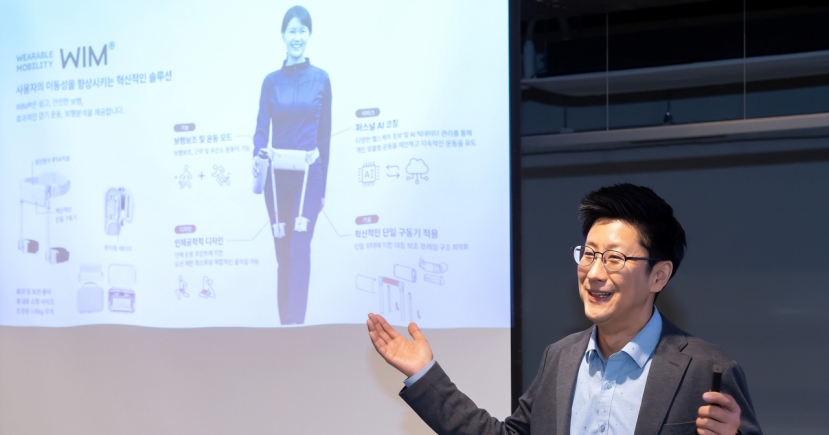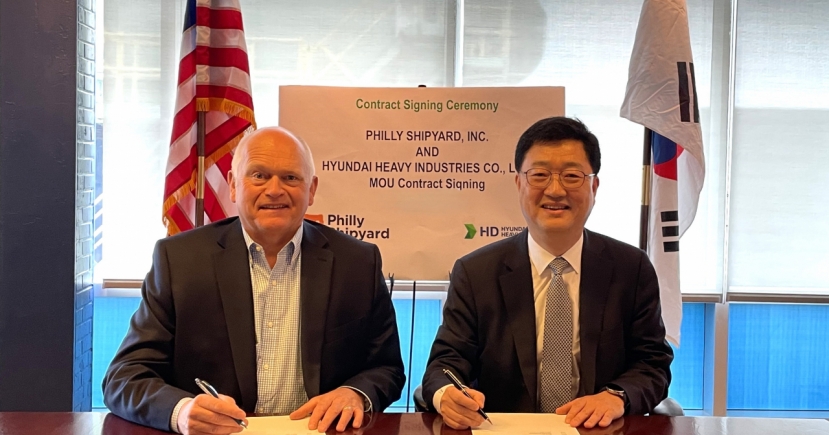Startups
Translink upbeat on Korean startups joining the big league
[THE INVESTOR] PALO ALTO -- Achieving “Unicorn” status with US$1 billion or more in valuation is a much-coveted dream for startups. And according to seasoned Silicon Valley venture capitalist Jay Eum who’s currently managing director of Palo Alto-based venture capital firm Translink Capital, the global startup scene will soon encounter what he calls a “Se-ri Pak moment.”
Se-ri Pak, the first Korean LPGA golfer who was inducted into the World Golf Hall of Fame in 2007, has been an inspiration for local golf enthusiasts and athletes wanting to make it big.
“Globally competitive Korean players in the startup segment are working hard behind the scenes, and I believe they will soon come into the spotlight,” said Eum in a recent interview with The Investor at Translink Capital’s Palo Alto head office.
“To put it in baseball terms, there are players with great potential in minor leagues, preparing to make a high-profile debut in major leagues,” said the venture capitalist, who is an avid baseball fan.
 |
Eum, who used to head Samsung Ventures -- an investment division of Samsung Group -- over a decade ago, co-founded Translink Capital in 2007 with two others: Toshi Otani, former VC operation head of Japanese telecommunications company Hikari Tsushin, and Jackie Yang, investment chief of Taiwanese semiconductor firm UMC.
Korean startups, he personally believes, have a chance to become “big sluggers” include online grocery shopping platform company Market Kurly and Viva Republica, which runs mobile P2P mobile payment platform Toss. Some global investors, he said, are already paying a great deal of attention to these firms.
Since his role at Translink Capital is to help Asian investors find good investment opportunities in the Bay Area, he said his views on Korean firms may be limited. But he firmly believes that there’s great potential in the overall Korean startup segment.
“From an outsider’s point of view, Korea is doing extremely well despite difficulties. For instance, KakaoTalk and Line, created by Korean firms, are vying with other top mobile messengers such as Facebook Messenger and WhatsApp in global markets,” he said.
The following are excerpts from the interview with Eum.
The Investor: Are entrepreneurs born or made?
Eum: I think entrepreneurs are born, not made. There are people who cannot help but start a business like Bill Gates, Mark Zuckerberg and Elon Musk, who had a business mind before they hit high school. You cannot compete with natural-born entrepreneurs, which is why I am personally against the idea that anyone can run a business. In this vein, I was opposed to the former Korean government’s reckless startup policies that encouraged everyone, young and old, to begin a company. Risks run quite high. Nearly eight out of 10 companies fail, and it’s hard to find a job after such failures. So why not become a good programmer instead.
TI: Why is it hard for Korean startups to get funding in Silicon Valley?
Eum: It’s not just Korean startups, but many foreign startups trying to make it in the US find it hard. Just a few foreign startups have achieved success here, like Israeli security firm Check Point Software and European companies Skype, Spotify and Supercell. It is also hard to say Chinese tech trio Baidu, Alibaba, and Tencent, aka BAT, have a solid presence in the US market. American startups have a home-field advantage as they have easier access to talent and money, which away teams, such as Korean and Chinese startups, lack. As a result, it is usually an uphill battle for the away teams.
TI: What can be an effective strategy for Korean startups to infiltrate global markets?
Eum: Having worked in the Silicon Valley VC scene for years, I have met many Korean startup CEOs who were looking for advice to enter the market. Most of the time, I tell them to try again later, after they achieve a certain level of success in the Korean market. Lacking connections and a reputation, they often waste time and money after failing to attract funds or talent. I also recommend them to target less-saturated markets, such as Japan, first. As in one of those “Romance of the Three Kingdoms,” games, you may not want to invade the most powerful nation Cao Wei, first.
TI: Some Korean startups successfully attract Silicon Valley money, but their performance is often under par. Will such cases have a bad impact on the overall image of Korean startups?
Eum: For the past two years, a far bigger number of US startups have reached the unicorn status, but many have also died out. I consider such trends as natural, not worrisome, and I think it is the same in the Korean startup scene. Startups get born, and then they disappear. What matters is there should be a success case.
TI: Which sectors does Translink Capital invest in?
Eum: Most of the partners at Translink have a corporate VC background. They used to work for large tech firms, like Samsung, Softbank, Foxconn, Hikari Tsushin, and UMC. Therefore, we pay keen attention to segments where most exciting innovations are taking place, such as artificial intelligence, infrastructure, and B2B cloud computing. Some of startups under our portfolio include music streaming platform operator SoundCloud, Penrose, a virtual and augmented reality content developer, and Misfit, a fitness tracker firm.
The electric car sector has recently caught our attention. We have been recently trying to link eJoule, a startup that produces electrode materials in a much more efficient manner than conventional methods, with Chinese electric car firms.
By Kim Young-won (wone0102@heraldcorp.com)
This story was sponsored by the Samsung Press Foundation. - Ed.








